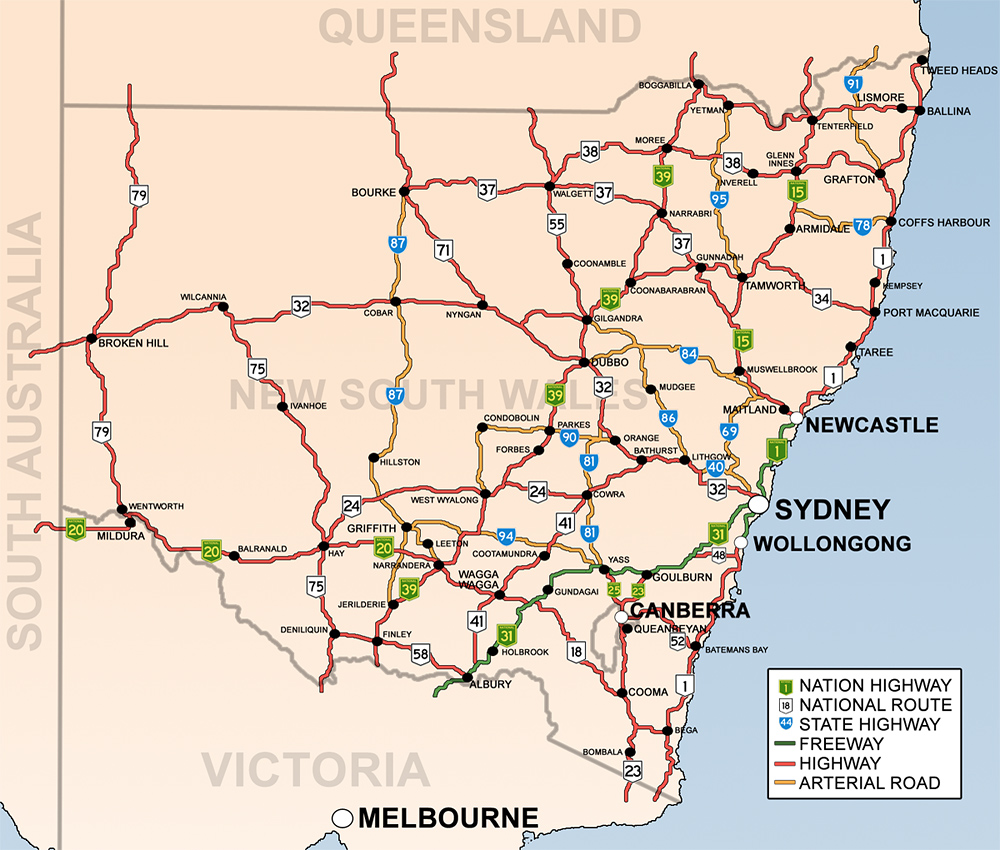
How to Use This Web Magazine
Why Another Prepping Website?
I had my first internet account in 1991, which is earlier than anyone else I know personally (either in real life or online). I've been online a long time, and seen a lot of things change. I started writing about prepping and survival online in the early 2000s. There would easily be, literally, more than 1,000 times as much freely available online content about prepping now than there was when I started doing this. Perhaps even 10,000 times more — quite seriously. YouTube didn't even exist until 2005. Early internet connections were barely fast enough to download pages with lots of images, let alone video.
A long time ago I was a Physics and Astronomy student. Once I did a short stint as a trainee at Mount Stromlo Observatory in Canberra. (Officially it was called a "Vacation Scholarship", in the long summer break between year 2 and year 3 of my BSc degree.) My supervisor, Professor Alex Rodgers, said that he thought the field of Astronomy was much more enjoyable to work in "in the old days" when you could read and follow and keep up with what was going on in the literature. And that in recent years, there was so much going on that you couldn't follow it all. And he missed the days when you could.

I loved the beauty, the majesty, and the powerful feeling of deep space adventure of the Astronomy I learned as a child. But I found the world of professional astronomy to be overly complicated, technical, dry, and overwhelming. It can be like that sometimes with prepping too. Photo by NASA, ESA, AURA / Caltech, Palomar Observatory / Wikipedia.
I think it's become like that with prepping. It's a very good thing that there's so much information available — but it does make it hard to know exactly what to look, at and where to start, and what to do next. True there are sites and videos about how to start, but after that there isn't that much to give a broad overall structure, and an overall plan, with different options for different people's individual situations and preferences, and that doesn't just cover one person's method of how things are best done.
Also, as noted in the Welcome Page, nearly all of the available online prepping information is non-Australian.
My aim for this website is to try to cover these gaps. And also to see what I can do myself, in a reasonably sane and intelligent order — and write that up online in a way that it's possible for someone else to read it. And follow it. And, without getting overwhelmed with having too many things that must be done.
I don't consider myself anything very special in terms of natural talent or ability at prepping and other related activities. In fact I have some personal issues (like my health) which put me far below average in some respects. So rather than being a guru with decades of highly specialised skills and experience, which ordinary average people can't imagine ever having themselves — I'm quite the opposite. Therefore, if I can do this, almost anyone else should be able to do it just as well (and in many cases, much better) than I can.
How to Begin With All This
You can start reading from the Welcome Page and then follow the "Next page:" links at the bottom of each page, and see where that takes you.
Alternatively (or if you've already read those), you could look at the listing of pages in the "First Steps" category, and pick out whatever looks interesting. Or go on to the next page in this series: This Is Your Mission, Should You Choose to Accept It.
Or just browse around the other pages and see what's of interest. If you're new to prepping, then at some point (sooner or later) it would be a good idea to read one or more of the First Steps pages, as mentioned above. There will eventually be some pages on "Why Become a Prepper?", which I haven't written yet...
The rest of this page contains instructions and information about how to use Prepping.com.au.
Quick Tips for Using this Website
Here are some tips for using this Web Magazine:
On many devices, press the F11 key on the keyboard to go into full screen mode, which will help reduce distractions. Press F11 again to return to the standard web browser view.
This site is quite new, and a few things don't work yet. Or are missing or incomplete.
I've been calling it a "Web Magazine" because I'm thinking of the old-style printed magazines. Which in the old days of print media, you might notice on the shelf of a newsstand as you were walking past. And pick it up to have a look. Perhaps on the way to work, or at the shops, or anywhere really. Perhaps because the cover looked interesting... Perhaps because it seemed like easy reading. And then you'd flick through it and learn things from it.

I had in mind the old-style print magazines, which you could flick through and learn a lot from without much effort. They nearly always had lots of pictures to go along with the text. Photo by Ajax Great / flickr.
Much of what's been said and written about prepping tends to be somewhat serious and dry. Which is only natural because it's a serious topic. But I think there's also a place for something that's less intense (at least in parts). And to approach prepping in a way that makes the idea of it seem like something normal and ordinary — and ideally even appealing — to normal, average, non-extremist, non-nonconformist people.
Currently the search form works in a basic way, the contact page doesn't work yet and the social media sharing links don't work yet. You can share the pages by pasting in the URL of the page. I'll try to fix these soon. Also some of the links at the very bottom of the page footer don't work yet.
Here is a list of some quick tips:
- Pages can belong to more than one category. Each page shows the categories its in at the bottom of the main part of the page, and also in the sidebar (which appears underneath the rest of the page on narrow screens such as most phones).
- The numbers in brackets on the main menus indicate how many articles are in each category.
- Each article stores the date it was first published and the date it was last updated. You can see the most recently updated pages on the page updates.html, and the most recently published pages on the page latest.html. Both of these listings can be found on the main menu under the home page link.
- The three most recently updated pages also appear at the bottom of every page, under the "Latest Page Edits" heading.
- At some point I'll improve the search functionality to search within prepping.com.au, which is currently working but only in a basic way.
- JavaScript: Many preppers are more concerned than average people about online security. Unlike many websites, nearly everything on prepping.com.au should still work if you have JavaScript disabled in your browser. The things I can think of right now that don't work without JavaScript are toggling the extra menu under the main menu (from shown to hidden), which is quite trivial and probably doesn't even apply to narrow screens like phones; the "sticky sidebar" functionality that allows the middle and right columns to vertically scroll independently of each other (again only on wide enough screens, and not many phones), which is only a cosmetic feature; and the Nuclear Explosion Simulator, which is entirely written in JavaScript and won't work at all without it. Also I think a few of the symbols used around the site, like the "eye" symbol for the number of pageviews, won't work without JavaScript. When the contact form is eventually done, it will look better with JavaScript but still work without it.
- Cookies: The site uses "PHP session cookies", which are about as minimal as cookies can ever be in terms of what they store about you. Currently I think they only store whether the page-top submenu is on or off, and what version of the Bible is set currently. In future there will probably be some links to affiliate products (where I get a percentage of sales made from people following the links and then buying things). These sites will have their own cookies and privacy policies.
- Information Tracking and Privacy: The general policy of prepping.com.au is to have the most minimal amount of tracking and data collection that's possible. The page view counters (with the eye symbol) are run from a private database and only track the view counts for each page, and nothing else — not even your IP address. The web server temporarily stores some minimal statistics (including your IP address, the operating system and browser you view each page with, and not much more than that) as do all web servers. There are no behind-the-scenes deals with popular data-collection sites like Facebook or Doubleclick, etc. Though occasionally some pages may try to load scripts from these sites. Unfortunately it's very hard to completely avoid. I was looking at one of my own pages on this site and noticed it wanted to allow scripts from Doubleclick (one of the world's larges ad-sharing companies which was purchased by Google in 2008). I thought to myself "How the hell did that get there?" I looked at the page source (as seen by the browser), and there was no mention of doubleclick.net. Eventually I figured it out — that page had an embedded YouTube video, which loads in its own frame. Which was the cause, i.e. YouTube was trying to load it. (Incidentally when I then looked at youtube.com, their home page wanted to load scripts from six domains, all of them owned by Google including doubleclick.net.) You can block these scripts with certain browser plugins, such as NoScript on Firefox. Few people realise how many popular websites do send information to these kinds of sites that track you every time you view a web page. Most people know that tracking does happen, but I don't think most people realise how massive is extent of it. If you're interested, try installing the plugin called Lightbeam on Firefox — and you'll probably be amazed to discover exactly how many different websites are constantly sharing and storing (and selling) your private information as you browse the web. There may be more recent/modern equivalents of Lightbeam for other browsers available now.
Retrospective Editing
Most of the pages will be treated more like encyclopedia pages, and updated on an ongoing basis, and less like blog pages that stay the same forever once they're posted. This means that many of the existing pages will be fixed up more and improve over time.
External Links
Most websites adopt a strategy of only using internal links (i.e. they only link to other pages within the same website), with very few or no external links (to other sites). This strategy is actively taught in classes on how to make websites, especially ones with a marketing focus. I'm deliberately going against this strategy with prepping.com.au, and will link to any page anywhere on the internet if I think it's got useful information that's relevant to the particular topic I'm writing about.
So one feature of this website will be to act as a directory and a roadmap to existing online prepping information. Since there already is so much information out there, it seems more useful overall to do it this way than to just try to repeat what's already there on other people's websites. This feature will be integrated with the rest of the website, along with each topic and each page, and not appear as if it's a separate directory or listing of other sites.

A feature of Prepping.com.au will be to act as a directory and a roadmap to existing online prepping information. Photo by Bidgee / Wikipedia.
(Important note for internet marketers / spammers / webmasters: This does not mean that when I get emailed by thousands of people saying, "Hey can you link to my site?" that I'm going to add a heap of links like an actual literal web directory or search engine would. That's what Google is for. It means that when I see something that I like, and use myself, on another website — I'll link to it without concern for it directing "my" readers away from my site to someone else's site. Nor concern for it "diluting my pagerank", or any of the other commonly mentioned internet marketing reasons to not link to other websites.)
Internal links (to other pages on prepping.com.au) will open in the same browser window and tab.
External links (to different websites) will open in a new tab (assuming your browsing software supports this feature — most of them do). On Windows you should be able to press Ctrl-Tab to switch back to the original prepping.com.au tab (even when using full screen mode with F11) without having to click on the tabs. I'm not sure what the equivalent key combination on a Mac is but there probably is one (Command-Tab perhaps?) Alternatively you can close the new external tab with Ctrl-W on Windows and Command-W on a Mac.
If you like, you can test it out by following this external link and then press Ctrl-Tab or Ctrl-W (etc.) and see if it works. Switching tabs, rather than closing them, is probably safer in the sense that you can't accidentally close the tab that you want to be reading.
Initial Website Creation Notes
I've used a "big" layout for this website, with a lot of menus, links, previews, and thumbnail images of other pages. Some of the links didn't work at first (and a few still don't), and some of the categories are still empty. A few pages still contain "dummy" information — but they need to be there until there's enough real pages in each major category for all the different thumbnail images and previews to work. That was the best way I could think of to get a lot of content up quickly (and without having to sacrifice too much from my everyday life — I'm not independently wealthy). Eventually the missing pieces will fill themselves out.
I've put a lot of consideration into building it so that it's very easy for me to add new pages quickly. My plan is that I'll be able to keep adding new content on a regular basis from now on...
It's a complex layout with a lot of categories and subcategories. It's taken up a lot of time getting it all together. But as the number of pages increases, it should make it very easy to navigate and to find things. This seems like the best way to make the site easy to use once there is a lot of content. There's no point having a massive vault of amazing information if no-one can find it, or even knows what to look for.
Which is a problem with much of what's online already: Everything you would want to know is there... somewhere. All you have to do is know what you don't already know to search for, and then search for it. Which of course you don't know — so people either give up, or browse randomly in the hope of finding more out. Even if you don't give up at first, doing a lot of random browsing will reveal literally tens of thousands of things that you could do to prepare for "the crash". Since it's impossible to do all those things, it's easy to give up then. Or to just keep reading more and more things, and then keep on reading some more, without doing much in real life.
Hopefully prepping.com.au will address some of these problems. I'll start with doing an audit of my own preps. (Note that this "audit" has been done now, and you can see the results of it here.) This will be good for me, to keep me focused, and (hopefully) good for others, to learn something from.
Next page: This Is Your Mission, Should You Choose to Accept It.
Prelude to Catastrophe The world had been teetering on the edge of conflict for years. Political tensions, economic rivalries, and territorial disputes had escalated, creating a global atmosphere of distrust and fear. Nations fortified their borders...
Nuclear Winter
A nuclear winter is a theoretical scenario that would follow a large-scale nuclear war, characterized by severe and prolonged climatic cooling and other catastrophic environmental effects. Here's what it might be like: ...
Movies and Video About Nuclear War
Here are some online videos that are recommended for preparing to survive nuclear war, and general nuclear war and nuclear bomb information: Protect and Survive ...

 Welcome to Prepping.com.au, the new web magazine.
Welcome to Prepping.com.au, the new web magazine.
 What is Prepping? A guide for normal people to get started.
What is Prepping? A guide for normal people to get started.
 How to use this site. When all else fails, read the instructions.
How to use this site. When all else fails, read the instructions.
 This is your mission, should you choose to accept it.
This is your mission, should you choose to accept it.








